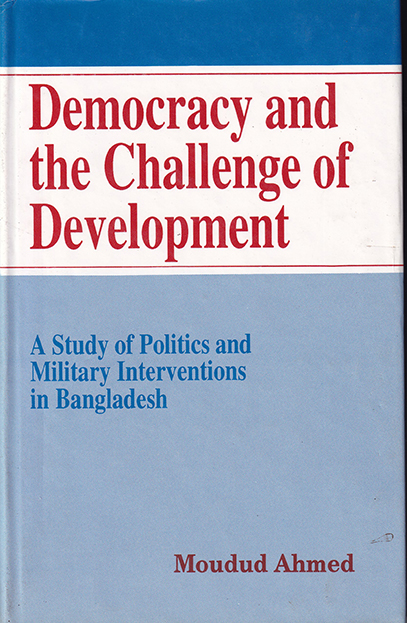
- Shop
- Democracy and the Challenge of Development - A Study of Politics and Military Interventions in Bangladesh
Democracy and the Challenge of Development - A Study of Politics and Military Interventions in Bangladesh
| Language: English |
Tags :
Book Info
There are as many similarities as there are differences between the two military regimes which governed Bangladesh for nearly fifteen out of the first twenty years of its existence. Bangladesh would find it difficult to recover from the effects of the long periods of martial rule or of rule with an unrepresentative government which virtually destroyed the growth of democratic institutions. Both Zia and Ershad involved the military in politics, disrupted constitutional rule, stifled civil administration and courts of judicature and established themselves as rulers by decree rather than consent, facilitated the consolidation of the civil-military bureaucracy and relied on the bureaucrats rather than politicians to administer the country. The power of governing the state moved from the hands of the politicians to the combined class of officers and technocrats - which changed the character and complexion of the administration as a whole. This is a unique book written by a former Vice-President and Prime Minister of Bangladesh who served under two military rulers of the country. The writer belonged to political parties created by the two military rulers whose interventions in democratic rule created a leadership crisis in Bangladesh. The book reveals how the military rulers in third-world countries tend to distort the social, economic and democratic fabric of the society through military interventions. The book provides an excellent perspective on the recent political history of Bangladesh. Fortunately, Bangladesh has again adopted a democratic order. Although this new journey is not covered in this book, the events recorded and issues raised in this book will continue to remain relevant for a better understanding of the future course of democracy in Bangladesh and third-world countries. The challenge to the existing and future leaders of Bangladesh will however remain the same: to be able to sustain a democratic order and at the same time achieve the desired economic growth despite all the constraints.

Moudud Ahmed
Moudud Ahmed (1940-2021) was a prominent statesman whose illustrious political career spanned decades in independent Bangladesh. From serving as the country’s first Postmaster General to holding key roles including Prime Minister, Vice President, and Minister of Law, he remained a central figure in shaping the nation’s governance. Despite shifting political affiliations, Ahmed consistently sought to rise above party lines, guided by his enduring love for Bangladesh. He actively participated in the Language Movement, Mass Uprising (1969) and the Liberation War. A prolific writer, he authored over a dozen books on law, politics, and history. His contributions were marked by intellectual depth and an unrelenting commitment to democratic ideals. He was awarded the Mother Teresa Award for Social Justice in recognition


